 Following here is an assignment: Find some object you hold near and dear. Something that can leap you into a backward narrative. Something to hold you as a memoir writer, going back, reflecting back. That thing, you can hold or touch. You find meaning in it. And, that object holds stories. Try and do this under ten pages.
Following here is an assignment: Find some object you hold near and dear. Something that can leap you into a backward narrative. Something to hold you as a memoir writer, going back, reflecting back. That thing, you can hold or touch. You find meaning in it. And, that object holds stories. Try and do this under ten pages.
I plugged the community/continuing education class I designed for the local community college, Oregon Coast, CC, here, at the local twice-a-week rag: “The art of remaking-retelling a story” (Newport News Times)
I’m big on writing narratives. Almost every person I have met and spent time with has told me their story. That story is sometimes a series of disconnected events. Many times people open up, and tell me about significant emotional events (SEE’s) that changed their lives, one way or another.
And, it’s never that simple, no, the death of a child or a newfound love. Change occurs over time, and that event changes through the sieve that is memory. How I was when confronted by federalies in Chiapas 40 years ago is a different story and memory landscape now compared to then, when I was telling all my buddies/compas about that event at Palenque.
So, below, I took the assignment I gave the 7 students to heart. Except, I was angry, I was riffing off of something completely unrelated to the assignment at first: I was asked to review a new novel, in manuscript form, from a fellow who is getting it published. And, man, after reading 200 manuscript pages of the 350 total, I was ready to punch out the world.
Without giving away the author and the press, here is that email to one of my editor friends:
Howdy — I really do hope you didn’t tell the author I was a “for sure thing” to review his novel. I’m sorry to say that what I’ve been reading thus far (200 pages) I can’t really do any good as a positive reviewer. I know we crossed this bridge before, me having major hiccups with the work of another book (that other novel, remember) . . . and I know you all have this book in the line-up.
But, shit, guys, I just can’t get into the book at all. I am not going to give you a big rush of negative comments about the bad dialogue, the incongruent characterization, the cut-out characters, and the dead-end plot, and the absolutely wrong way to start a book, and all the dialogue to move along a story, and the lack of verisimilitude. Look, I know I am just a flunky out here in Oregon, but I have been in the fiction game, even with all the rejections over the years, for a very long time. I’ve taught fiction, too. And, I am a deep reader of fiction. I was not expecting Ivan Doig or Jim Crumley or Tom McGuane or Robert Stone, you know, but, seriously, I can’t find anything literary about the book, and I can’t find much to say that would make a review helpful for him or as a way to highlight your new Press’ addition. You know I want to help you all, but there isn’t a decent poetic or literary hook in it, nor is there a hellava plot, nor is there a helluva cast of characters. There is no electrical charge in the writing.
I hate to do this to you since you both have been good at going with my stuff, and publishing my work in the past. I just wouldn’t be able to pull this one off, without it being just a marketing promo, and I know you do not want that from me. I am sure Mr. S has a following and a slew of people ready to read this book. That bodes well for potential sales, for sure.
I want to be honest and upfront, since I respect you both. I am not your man in Havana for this project. While I have reviewed a hundred books for the El Paso Times years ago, I remember Leslie Ulman giving me a Pam Houston book to review, since she was a guest at UTEP, that is, a visiting author. A friend of hers, as well. I know my clear look at and pugnacious reviewer’s response to that book, once it hit the newspaper (and was syndicated out further afield), caused some rumbling and grumbling with Leslie and Pam, but shit, I didn’t do a hatchet job on it — just some cogent and pithy writing myself as reviewer to point out some of the westerny sort of overkill.
Mr. S’s book is what it is — you all have him on contract and you all have it planned for publication. I just do not want to do a heavy heavy heave ho of my own principles as well as disregarding my own history as a writer and reviewer by attempting something positive. I could have a hell of a fistfight with the book, but that’s not what you all are after.
I see K is on the jacket with kudos. He seems to be your man, really, for this assignment.
I’m not being snarky or elitist or any of that, as you well know me.
It’s not a good book, guys. Not well written. It’s canned dialogue. Cliche. Off the mark. Boring. Not going anywhere. And, yes, he was a journalist, but I can tell you these folk in the book are not real, and as you know, fiction has to be more than pedestrian recording of events. One of the rules is to not move the plot and story and tension with dialogue. That’s most of the book. So much is bad in the book.
Yet, there is that adage that one person’s cup of tequila is another person’s buttermilk. I gotta stick with tequila. Others love the heavy tasteless milk.
Thanks for thinking of me.
Good luck with it and to him.
It’s not just a slam dunk me writing that criticism above. Really. I’ve been hawking my long form, that is, novels, short story collections, essay collections, for a very long time. New York agent named Jack Ryan, and he went to bat for, and he was also waylaid by many a female editor who thought my stuff was too male, too regional, too dark. The list goes on. Cancel culture 1986-2010.
So, really, putting out a review of this book was not possible for me without really eviscerating the words, the plot, the entire book, which for me would be a public spiritual homicide. That’s not in my inner core, though I can be super critical and pugnacious when it comes to, well, beautiful people, or those who have made it and are resting on their laurels.
Here, a quick note from the editor in response to my decline —
Paul,
This is the most magnificent decline I have ever read! So glad you are here to keep us honest.
Others had troubles with the book too.
For some reason, I just liked the narrator, but overall that’s probably not enough.
So it goes. This world we live in, the one we always have lived in. Lives interrupted, derailed, denuded, and of course, enhanced by surviving.
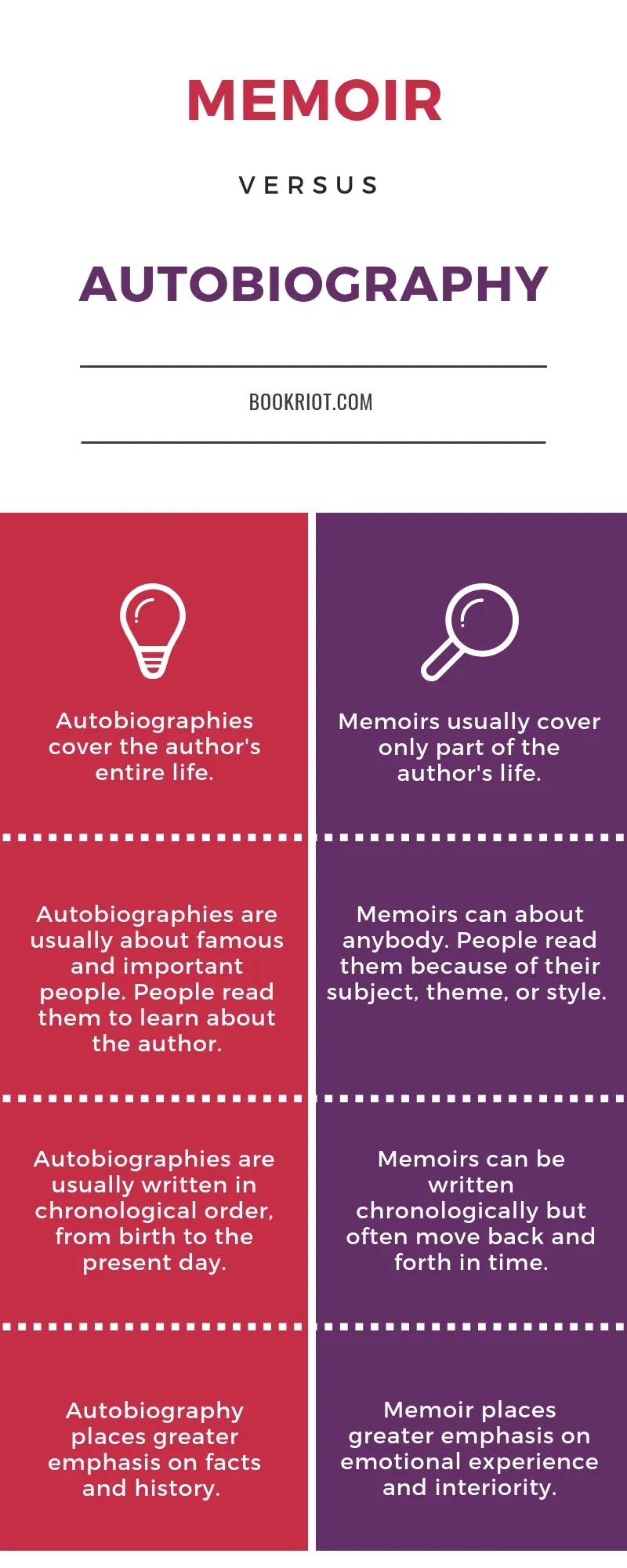
Memoir vs Autobiography Basics
1. Autobiography usually covers the author’s life — the entire life up to the point of the writing, while memoir focuses only on a part of the author’s life.
There are going to be exceptions to every point on this list, but generally speaking, autobiography aims to be comprehensive, while memoir does not. Autobiographers set out to tell the story of their life, and while some parts will get more detail than others, they usually cover most or all of it.
I do use Mary Karr’s work, the Art of Memoir, in the class. And, Tritine Rainer’s Your Life as Story.
Here, just one slice of the definition and connotation:
Loved the essay.
Reminds me of the time my girlfriend Lois and I drove from Tucson to the coast in a lark. We picked up a hitchhiker in Big Sur. We dropped him off at a compound of Hobbit cabins in the hills above the surf where his father – Stephen Stills’ dope supplier – gifted us the most potent weed I’d ever smoked. One puff and I fell down on the ground paralized. He said he wanted to give me a couple bags in thanks for bringing his son home, but I was paranoid with the paralysis. Lois helped me walk to his cabin where we would get our “reward.” He opened a wooden trunk that I was sure held a shotgun that would start a Manson-like killing spree beginning with Lois and me. Instead we got three or four bags of this wild dope that later in our circle in Tucson was called “killer weed”and taken out and smoked on only the most sacred occasions.
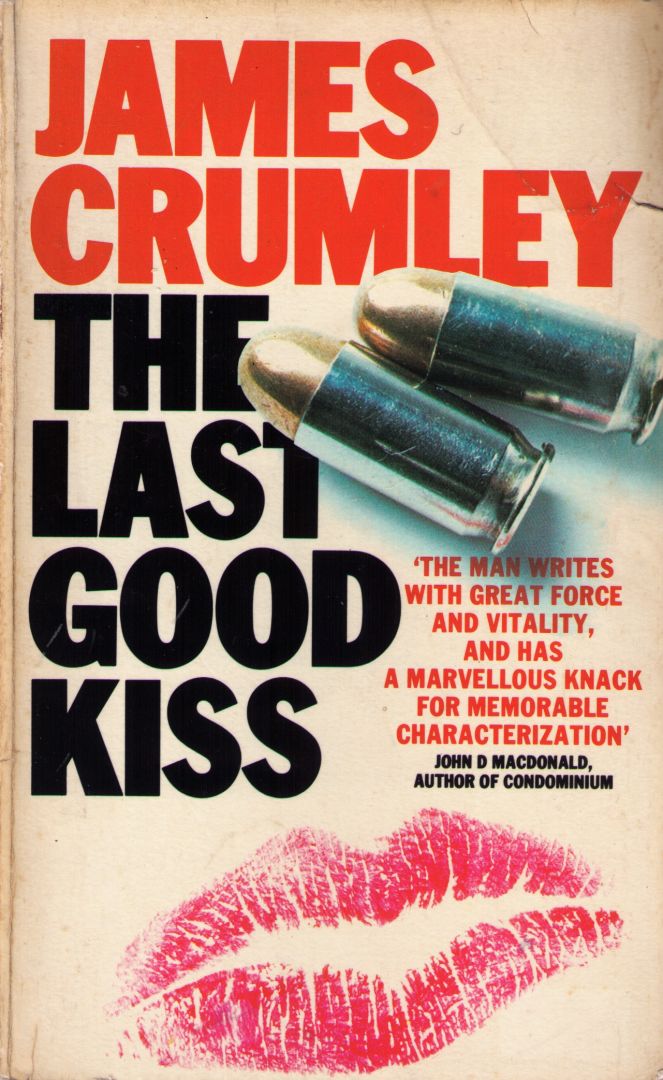
Okay, then, you the reader now have me the writer in your sights. Enjoy the flow of memoir, in this “literary” essay. God help us all!
+–+
Grizzly Country, a .44 magnum, a Thrown- Away Suitcase, a Cleveland Woman’s Life Scattered
When I finally caught up with Abraham Trahearne, he was drinking beer with an alcoholic bulldog named Fireball Roberts in a ramshackle joint just outside Sonoma, California, drinking the heart right out of a fine spring afternoon.
— opening line, The Last Good Kiss by James Crumley
“Did you hear? Catina is going to Mexico with some guy with long hair and earrings in both ears in his old pick-up truck. Can you believe that?”
Not the best opening line for a book but I couldn’t get it out of my head all the way up to that Last Good Kiss bar in Missoula where James Crumley had invited us to sip Patron.
My girlfriend’s North Dakota cousin’s words couldn’t top this: An orange Samsonite suitcase was the gaping open evidence of some meth-ed out former boyfriend who snatched the dark-haired woman in a Montana town and found a lonely path frequented by bruins in order to dump her body along with all her earthly belongings somewhere in that dark dripping night in Big Sky country.
Okay, not Jim Crumley prose, but I wasn’t writing it, just thinking it after we found the two high school yearbooks wet from the afternoon drizzle. The mud that led to our dry campsite held a couple of dozen color snapshots spread around like flattened lives. There was a cool leather fringed leather jack, two pairs of jeans laid out like a running ghost. The lacey underwear I saw first. Half was left in the suitcase, the other half flung around where the case spilled open.
We were twenty miles from Missoula, after heavy tequila toasts with Crumley, and we were in THAT pre-Mexico pick-up truck with the small camper snuggly attached holding all our gear. We wanted to have a campfire, hot coffee and flapjacks in the morning.
It was getting dark, and bear prints were around this mess of scattered things in a woman’s life. Two pink bras, a Jimi Hendrix t-shirt, a bunch of personal letters in envelopes bound by hair bands. This was 1985. There were no cell phones. We were out in the boondocks. It was just me and my girlfriend. We both were friends of Crumley since he was both a professor and my thesis advisor at UT-El Paso of all places.
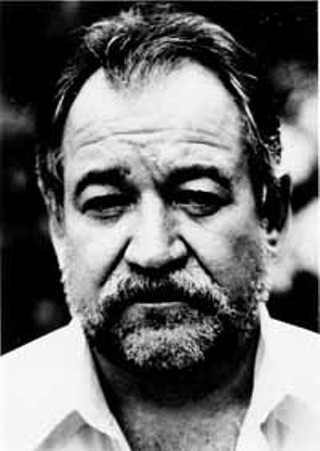
We had been in his classes, and we taught alongside him as graduate students. He wanted the thrill of Juarez and the West Texas mountains. He was a heavy drinker, liked coke and he dated students. I was able and ready to get him the white stuff. He liked my wild man freedom. He was especially curious about my work in a refugee center helping Central Americans – mostly Guatemalans – get political asylum.
The word was he got sacked (not rehired for his year-to-year visiting writer contractor) because some students complained old Dancing Bear Jim came to the workshops three sheets to the wind. That was 1984, before #metoo. There were accusations of dating graduate students, not a no-no, but at UTEP, with a prude of a president, these rumors were enough to get the writer fired.
My girlfriend, Catina, wasn’t really freaking out at the sight of the splayed suitcase. She had a few theories about why this woman’s personal belongings were about. There was a domestic violence sort of vibe I could feel, the light was diminishing in May, and large snowflakes floated down from the purple sky. I was more paranoid than Catina. I knew I had to be the asshole that might have to pull out both guns and get our asses out of some fucking Gary Gilmore situation. Back then, in my 20s and 30s, I courted such things, literally and in my mind.
“You know, it looks like this girl just tossed this suitcase out as if she was jettisoning part of her life. You know, high school years, busted friendships. Fuck, high school can be like a mind fuck. The shitty girls and the rape-minded motherfucking football players. I guarantee, this girl did not just have the one suitcase. But this one, with photos and journals and letters, that’s my theory. One life gone, a new life in Montana. Maybe Canada. There’s no foul play.”
I liked the way Catina plotted out a story from her personal point of view. I would have never thought of a scenario so close to the female perspective.
We came to Crumley, to get my thesis approved, and now, here, after drinks and buffalo burgers, to see bears. Hell, wasn’t that the irony, Dancing Bear and all, his novel? Make no bones about it, we saw two brown bears when we approached the muddy road down into this killer of an empty campground. Grizzly Campground was the name. It was part of Rock Creek, located in the Ranch Creek drainage. Several campsites bordered the creek, and we picked this one. We had it all to ourselves, and we were high and drunk, and we wanted to pitch a tent, and then this scene unfolded like ball lightning in our veins, right there where we were about to pitch our tent.

I still had a revolver and lever action pair of weapons on my mind. The four-inch buck knife on my leg, well, just for cutting apples and cheese.
We barely touched some of this girl’s things, and we agreed to not rifle through the personal notes and journals. Not just yet. As I said, I had two guns in the camper, and Catina had camped with her Colorado family all over the west her whole life. We were not afraid of wild things. Just men with uppers, booze and sinister thoughts in their blood.
We were in awe of the ferns, the boggy smell reminded me of my mom’s birthplace in British Columbia. Then there was that amazingly metallic and citrus odor in the air, fresh conifer growth. And the water heartbeats of a nice clear creek hitting boulders. We could see the quicksilver flow draping rocks, granite heavy with moss and lichen.
“Hell, I guess we have to let the cops know about this when we head out. But for now, it’s fire, tent, booze.”
Catina took a few Missoulians and spread them out over the scene of some crime. It was a crime in anyone’s books – to chuck personal correspondence and two high school yearbooks into the mud.
Making camp was a quiet time for us, a rarity. Catina was in her thoughts. Her own family demons. I was just stunned with the possibility of having to do some sort of bullshit thing if anyone returned to the scene of the scattering. A crime? My theory was the opposite of Catina’s.
I got the half full bottle of Juarez tequila from the back, tucked in a nice colorful serape from Juarez we were going to gift to Crumley. I took swigs from the bottle. Warm, dry earthy draws back to hot desert. Being up here — with Crumley, and thinking about my own prodigious dance with booze, drugs, adventure and recklessness never seemingly coming to a bad end, even when I got in a few pickles out in the wilderness with no gas and a hot motorcycle I had to push to find some place to put down a bedroll — I was invincible with my girlfriend and my guns.
Man, the time I was 18 with my scuba buddy Brian, in the Sea of Cortez, and we had just run out of gas after hours of diving and snorkeling (he continued to say, I told you so . . . we shoulda bought another gas tank). Shit, I told him to stay put, and I went madly swimming toward a marlin fisherman who also happened to be out in the middle of the Sea of Cortez near Tiburon Island. I swam and swam with rocket fins and snorkel-mask. I got there in 30 minutes.
Typical for me: Bad situation turned into a free tow, a party at their condo and still my buddy complained, as he stayed in the one room hotel and pouted. Tequila, steaks, amazing stories, and even getting laid. That’s what running out of fuel in a 16 foot barely-sea worthy boat will get you.
Or get me.
I had promised Catina’s parents back in El Paso that no harm would come to her on this camping trip. The clearly anxious and chaotic nature of the Samsonite toss and the large area of disarray felt like a foreboding.
Yeah, my own 23-yea- old sister came to mind when the fire was roaring with the agave spirit burning my esophagus. Barely dead a few years.
Roberta was wild, adventurous and killed driving her Harley out of Kamloops south to see me, our sister, mother and father in Arizona. Call us the half brother and half sister. The Army stepdad was on his way out of the country to Saudi Arabia. Robbie insisted on coming down by road, to Tucson, with two male buddies on their rides.

That was 1978 when we got the call that she had hit the pavement after some fucker passed out at the wheel and crossed the lane into her bike.
Another set of adventures, a burial, a wake, after a crazy sea plane into Hyder, Alaska. My mother was there, with her fragile lungs, coming into Alaska on a cold night, which was bright in June. I was her escort, the only other family there. I met her biological dad Rod there, a guy I had met years earlier in Vancouver, when my sister sent me a bus ticket to visit her.
As I write this (and almost everything), her squash blossom turquoise bracelet is by me, sort of a talisman, a reminder, or some ethereal message bugging me to keep plugging away. Here I am sixty-five, writing about a forest haunting when I was 28.
Those years, man, 28, Crumley had my book, something I thought would sell: the great American novel set in Mexico. That was what centered in my head then, and even now, almost 40 years later, it’s like a rheumatoid disease, a stupor at times, enchanting me into believing I have the impetus still, now, to push through all the bloody hurdles and walls to get something big published.
That disease lasted for 30 years since that week with Crumley. It’s untreatable. It’s terminal for some. I am one of the unlucky suckers still believing in some fucking New York publishing miracle.
We got the tent set up, as snow slowly powdered the ground. The campground was amazing, the greenest, most jungle like since we had been camping in deserts, along the north rim of the Grand Canyon. In Utah. In New Mexico. Coming from El Paso, we decided to hit the Colorado route.
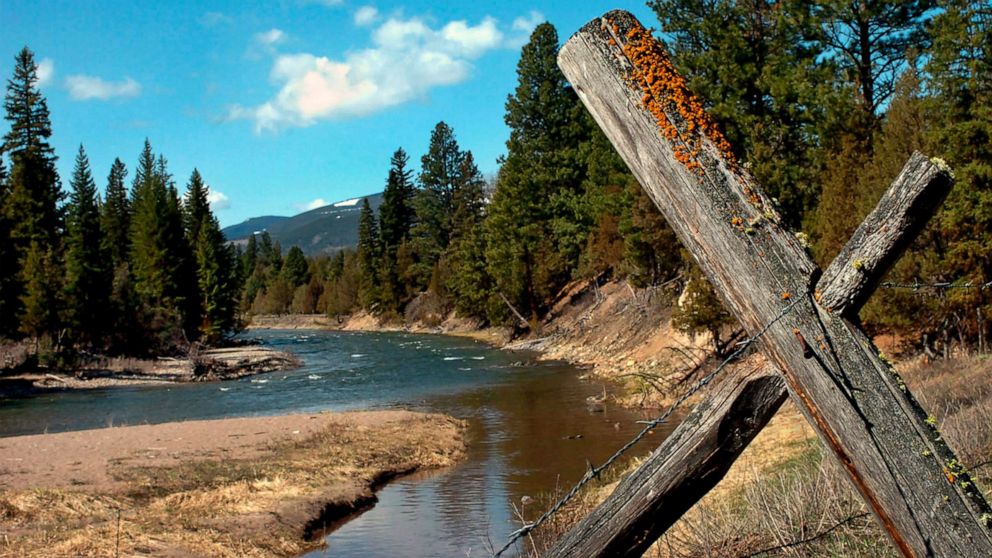
But this, Grizzly Campground we claimed to ourselves. Hours with Crumley and then my interview at the Missoulian (I never got the job – a dozen out of work PhDs in Missoula looking for writing work, even newspaper work, way ahead of me on the prospect list). We were heading to Livingston, to Chico Hot Springs, to hang out with Crumley and the director of some film Jim was helping script-fix.
The guy – director of Black Beauty, I think — had an option on Dancing Bear and The Last Good Kiss. Time magazine had just done a piece on the up and coming noir writers, and Crumley was one on that list as a killer detective fiction guru. He was from Texas, did shit in the Army, got an MFA from the Iowa writers workshop, and learned from Richard Hugo to study Raymond Chandler in order to become fluent and real and poetic as a novelist.
At 28 with my own suitcase full of real life, adventures, travels, I was an admirer but not a fan boy, really, of the complete Crumley, though he did resist paying taxes as a protest against the Vietnam War. I was all life, fiction, journalism, politics and considered myself left of Che.
That suitcase, the fire Catina had stoked well, the waning light, the creepy icy white on all the ferns and low limbs of amazing conifers made for a Crumley noir setting. Then, juxtaposed with our own plans to take this Datsun pick-up all the way to Guatemala loaded with scuba gear and typewriters. Then, we’d be heading to the Yucatan after hitting every Mexican state. Stories for the two dailies in El Paso. Rolls of film sent to the editors.
There is something about the personal belongings of someone – a woman’s make-up accouterments, the undergarments, the letters, hair brush and berets – spread out all over the place in the open. No tire tracks to speak of, except ours. And, to be sure, I did make a head-lamp and hand-held flashlight recon of the area within a mile of the camp.
The idea Catina had was she just lost it. Threw the shit away in a rage. Something about the past, all those journals and yearbooks. Mind you, we had not rifled through anything yet, and we did not pull things out of the suitcase. We did, however, bring the scattered remains of the orange travel case back to the center of the dirt road.
The newspapers were getting covered in snow. We were shivering. The tent was perfect near the fire. I drank Juarez tequila and Catina sipped a bottle of merlot. Granola and gouda we consumed while we were deep in our literary and gumshoe thoughts.
The pile of belongings I kept pointing the strong flashlight at (actually, a diving light, with a huge veronica of bright beams) — the covered-up life of this woman. And, I saw eyes, in the distance. Bear whiskers. We had the food in the camper sealed up. We tried to keep crumbs away from everything. Nothing in the tent would attract a bear. I even had a big can of bear spray. And the fucking .44 magnum and 30.30 Marlin.
There were bears out there. That’s what we came for, but we didn’t count on the broken suitcase and a life strewn all over the place.
There was some essence of Cherri Halister the next morning. That’s what her name was. We looked hard and long in the yearbooks. She was there, circled, with “The best one at the party. . . . three-fisted drinker . . . why do we have to graduate now, now that we are just becoming friends?” Other tributes and benedictions from her graduating friends. She looked like Barbara Hershey – Remember her, in The Last Summer, Boxcar Bertha, The Baby Maker? Catina knew Barbara, and, of course, later, she did Hannah and Her Sisters, and played Mary Magdalena in The Last Temptation of Christ.
Hell, my younger sister Heidi was an extra in a movie with Charlton Heston, The Last Hard Men. Barbara Hershey took a liking to my kid sister. Heidi was nine years old; it was shot at Old Tucson, the movie lot that burned down. I took her to the set many times. I watched Heston and Hershey plod along in some of the scenes that needed the old western cutout town. I told Catina that, and she laughed, telling me that I would be famous one day for being just this far on the edge of fame – she put both her hands out and sized up that fame around 18 inches.
She was right.
This is a place I never heard of, Mayfield High School, in Cleveland. The Wildcats. The year books were for 1968 and 1969. If she was 18 upon graduation, this Cherri Halister would be 34 when we found her stuff all over the forest.
We were entranced by the pile of belongings, but I had pangs of paranoia that something bad really did happen to her . . . or some fuckers might be coming back. I had the Ruger holstered on my hip and the Marlin fully loaded and on the front seat of the Datsun.
I sort of knew those two firearms would be added props for the story I was going to tell Crumley, and all the friends I had back in El Paso, in Tucson, and doctor family back east. Guns, long-haired guy with earrings in both ears, a blue Datsun king cab pickup, a girlfriend who knows how to get a campfire going in sleet and rain, and some flagging belief that a guy like Crumley would actually help me get a novel published.
Sure, a few hours with Peter Fonda and some other notables at Chico Springs was filed away in my Irish storytelling satchel. Crumley introduced me to him. Then the lore of, well, Richard Brautigan who, after meeting Thomas McGuane (another Montana writer), he would eventually visit Montana’s Paradise Valley and buy a 40-acre ranch in Pine Creek, near Livingston. All that lore, man, and yet, the trip, the entire trip we made was punctuated by Cherri’s disappearance.
We did stop at Deer Lodge and call the Sheriff about what we found. I did rip-off a photo of her: a nice color photo of Cherri Halister, at a pool, in a blue bikini. She must have been around age 16 or 17. Nothing creepy. Just a captured moment in time, when she looked like a really young and budding Barbara Hershey.
When that suitcase was still in her family’s garage. When the light of life was just seeping a bit out of her young life. Barbara Hershey would have been jealous of Cherri. She looked like a star.
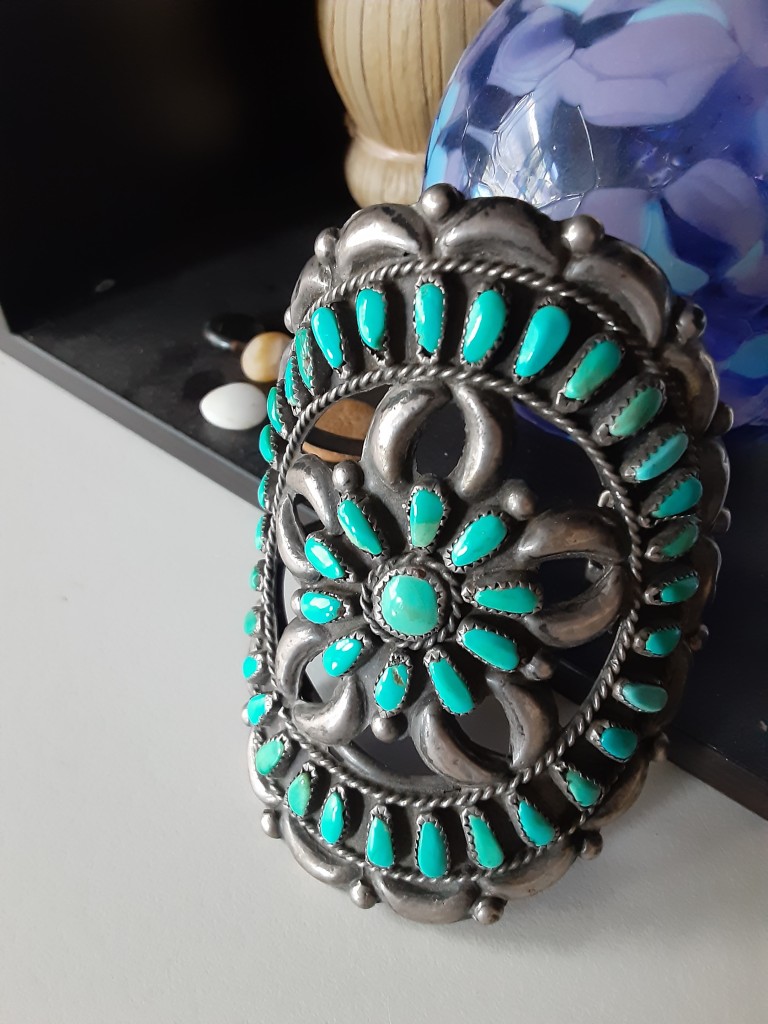
This content originally appeared on Dissident Voice and was authored by Paul Haeder.
Paul Haeder | Radio Free (2022-02-26T10:18:00+00:00) Leaning into Memoir Writing in Order to “Know”. Retrieved from https://www.radiofree.org/2022/02/26/leaning-into-memoir-writing-in-order-to-know/
Please log in to upload a file.
There are no updates yet.
Click the Upload button above to add an update.